
Partow Kebriaei, MD, discusses the potential shift away from transplant in acute lymphoblastic leukemia in light of ongoing advancements.

Your AI-Trained Oncology Knowledge Connection!


Partow Kebriaei, MD, discusses the potential shift away from transplant in acute lymphoblastic leukemia in light of ongoing advancements.

The investigation of treatments harnessing the immune system in patients with T-cell lymphoma could lead to "a new era" of therapy for this patient population.
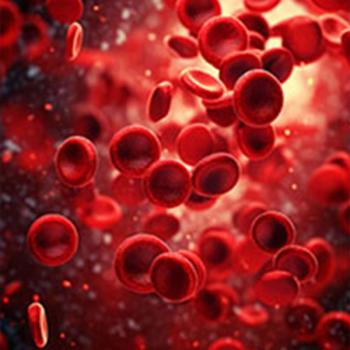
Imetelstat sustained red blood cell (RBC) transfusion independence in patients with RBC transfusion–dependent lower-risk myelodysplastic syndrome.

Reid W. Merryman, MD, discusses notable advancements with minimal residual disease assays in lymphoma.

Tisagenlecleucel is moving to earlier lines of therapy for pediatric and young adult patients with relapsed/refractory B-cell acute lymphoblastic leukemia.

Sonali M. Smith, MD, discusses the current arsenal of bispecific antibodies available for the management of relapsed/refractory follicular lymphoma.

Sergio A. Giralt, MD, discusses how to determine transplant eligibility and the evolving role of transplant for patients with myelodysplastic syndromes.

Immunotherapy has become a valuable tool for the treatment of patients with various types of lymphomas because of its ability to specifically target cancer cells, particularly those in blood cancers.

Key opinion leaders from across the hematologic oncology realm shared their biggest takeaways from the 2023 SOHO Annual Meeting.

Uwe Platzbecker, MD, discusses how the FDA approval of luspatercept for the treatment of anemia in patients who have not had prior treatment with erythropoiesis-stimulating agent and may require regular red blood cell transfusions could change the sequencing of agents for this patient population.

Patient preferences should be considered when selecting the optimal treatment regimen for patients with relapsed/refractory follicular lymphoma, as both CD19-directed CAR T-cell therapies and CD20-targeted bispecific antibodies can be efficacious in this population, according to a presentation by Caron A. Jacobson, MD, MMSc, at the 2023 SOHO Annual Meeting.

Efforts to widen the treatment armamentarium for patients with mantle cell lymphoma have been thwarted by increased toxicities and resistance mechanisms with effective therapies such as BTK inhibitors.
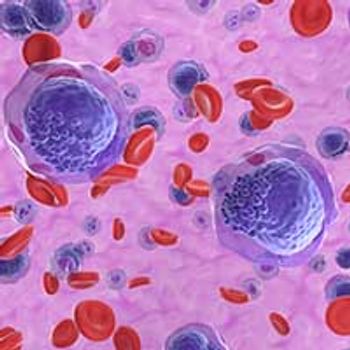
Following the FDA approvals of the JAK inhibitors ruxolitinib, fedratinib, and pacritinib, the treatment landscape of myelofibrosis continues to grow with the use of these agents with an additional FDA review planned for momelotinib in September 2023.
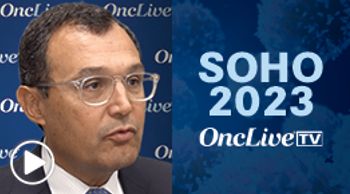
Guillermo Garcia-Manero, MD, discusses the key efficacy findings from the phase 3 COMMANDS trial evaluating luspatercept-aamt in patients with myelodysplastic syndrome who were erythropoiesis-stimulating agent naïve and red blood cell transfusion dependent.

Quizartinib plus standard intensive induction and consolidation therapy resulted in improved overall survival compared with placebo in patients with newly diagnosed, FLT3-ITD–positive AML irrespective of allogeneic hematopoietic cell transplantation in first complete remission and pre-allo minimal residual disease status.
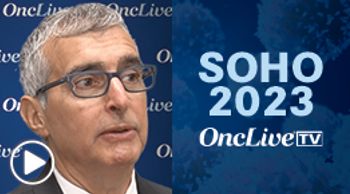
Harry Erba, MD, PhD, discusses the role of quizartinib for the treatment of newly diagnosed patients with FLT3-ITD–positive acute myeloid leukemia.

The incorporation of brentuximab vedotin (Adcetris) into the frontline treatment of patients with Hodgkin lymphoma correlates with superior efficacy, irrespective of PET2 results, suggesting loss of predictive value with the scan.

Subcutaneous epcoritamab produced deep and durable complete remissions in patients with relapsed or refractory large B-cell lymphoma, with complete responders having favorable long-term outcomes, according to updated data from the phase 1/2 EPCORE NHL-1 trial.

Loretta J. Nastoupil, MD, discusses the safety and efficacy data from the phase 2 TRANSCEND FL trial evaluating lisocabtagene maraleucel in patients with relapsed/refractory follicular lymphoma.

Brad S. Kahl, MD, discusses the potential for BTK inhibitors to shift the frontline treatment setting in mantle cell lymphoma.
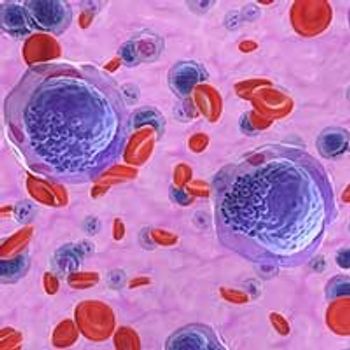
Loncastuximab tesirine-lpyl plus rituximab demonstrated promising antitumor activity and consistent safety signals in patients with relapsed/refractory diffuse large B-cell lymphoma.

The addition of quizartinib to induction and consolidation chemotherapy, followed by single-agent quizartinib for up to 36 cycles, improved survival outcomes vs placebo in patients with FLT3 ITD–mutated, newly diagnosed acute myeloid leukemia.

Without a plethora of randomized and historic data to compare treatments, selection and sequencing strategies for patients with relapsed/refractory multiple myeloma must balance a multitude of factors, including adverse effect profiles, disease resistance mechanisms, and more.

Developing an optimal treatment strategy for patients with accelerated- or blast-phase myeloproliferative neoplasms requires consideration of a patient's ability to tolerate intensive induction therapy, their eligibility for allogeneic stem cell transplant.

Minimal residual disease negativity sustained for 6 months or longer with ciltacabtagene autoleucel prolonged duration of response and progression-free survival compared with minimal residual disease negativity sustained for less than 6 months in patients with heavily pretreated relapsed/refractory multiple myeloma.

Investigating the addition of novel agents to cytotoxic chemotherapy may help prevent relapse in patients with T-cell acute lymphoblastic leukemia by bolstering the efficacy of these standard frontline therapies.

A retrospective analysis of the Surveillance, Epidemiology, and End Results database emphasized the potential impact of specific socio-racial factors, such as race, sex, and age, on survival outcomes in patients with primary myelofibrosis.

Yi Lin, MD, PhD, discusses the patient characteristic for those with relapsed/refractory multiple myeloma who experienced sustained minimal residual disease negativity following treatment with ciltacabtagene autoleucel during the phase 1/2 CARTITUDE-1 trial.

No difference in relapse-free survival or non–relapse mortality was seen with intensive vs non-intensive consolidation chemotherapy regimens prior to allogeneic hematopoietic stem cell transplantation in elderly patients over the age of 60 with acute myeloid leukemia in first complete remission.

Hagop M. Kantarjian, MD, discusses the predictive value of early landmark cytogenetic or molecular responses to ponatinib in heavily pretreated patients with chronic-phase chronic myeloid leukemia.